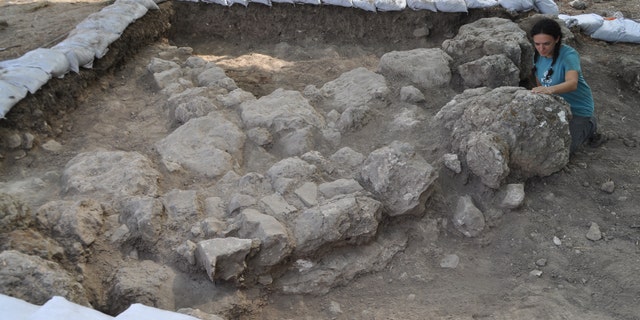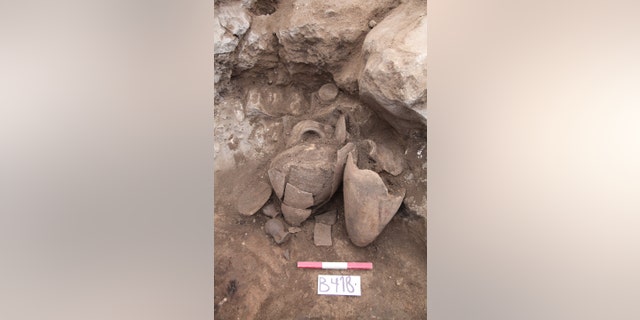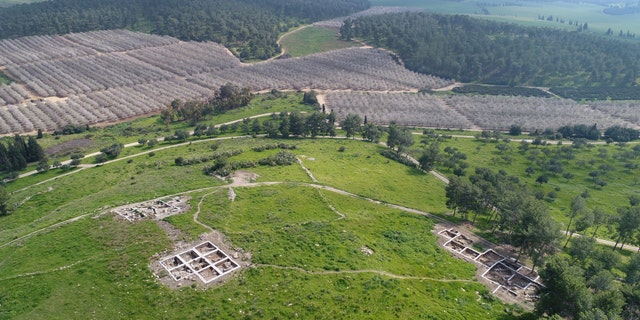Archaeologists in southern Israel have discovered an ancient biblical city from the time of King David.
The
site was discovered near the modern city of Kiryat Gat by researchers
from the Hebrew University in Jerusalem, Macquarie University in
Australia and the Israel Antiquities Authority.
The
Philistine ancient city of Ziklag is mentioned multiple times in the
Bible in relation to David, the researchers note, citing 1 Samuel and 2 Samuel.
“According to the Biblical narrative, Achish, King of Gat, allowed
David to find refuge in Ziklag while fleeing King Saul and from there
David also departed to be anointed King in Hebron,” they explain in a
statement.Some 12 other sites in Israel have been considered as the possible location of Ziklag, although experts note that none of the sites has a continuous Philistine settlement and a settlement from the time of King David. The site near Kiryat Gat, however, meets both criteria.

Part of the excavation site. (Israel Antiquities Authority/The Hebrew University in Jerusalem)
Other discoveries include bowls and an oil lamp, which were offerings laid beneath the building’s floors for good luck. Stone and metal tools were also found at the site.
“Above the remains of the Philistine settlement was a rural settlement from the time of King David, from the early 10th century BC,” the researchers added. “This settlement came to an end in an intense fire that destroyed the buildings.”
1 Samuel 30 describes how the Amalekites, ancient desert nomads, burnt Ziklag.

Pottery jars uncovered at the site. (Israel Antiquities Authority/The Hebrew University in Jerusalem)
“The great range of complete vessels is testimony to the interesting everyday life during the reign of King David,” the researchers said in the statement. “Large quantities of storage jars were found during the excavation- medium and large-which were used for storing oil and wine.”
Jugs and bowls decorated in a style typical of King David’s time were also uncovered.

Aerial stills of the excavation site. (Emil Aljem, Israel Antiquities Authority)
Last year, researchers uncovered an ancient site at Tel ‘Eton in the Judean foothills that may offer fresh insight into the biblical kingdom of David and Solomon. The kingdom is described in the Hebrew Bible but has long divided historians.
While some experts believe that it existed in the 10th century B.C., others have questioned its existence, citing a lack of evidence of royal construction at the center of the region where the kingdom is said to have existed.
No comments:
Post a Comment